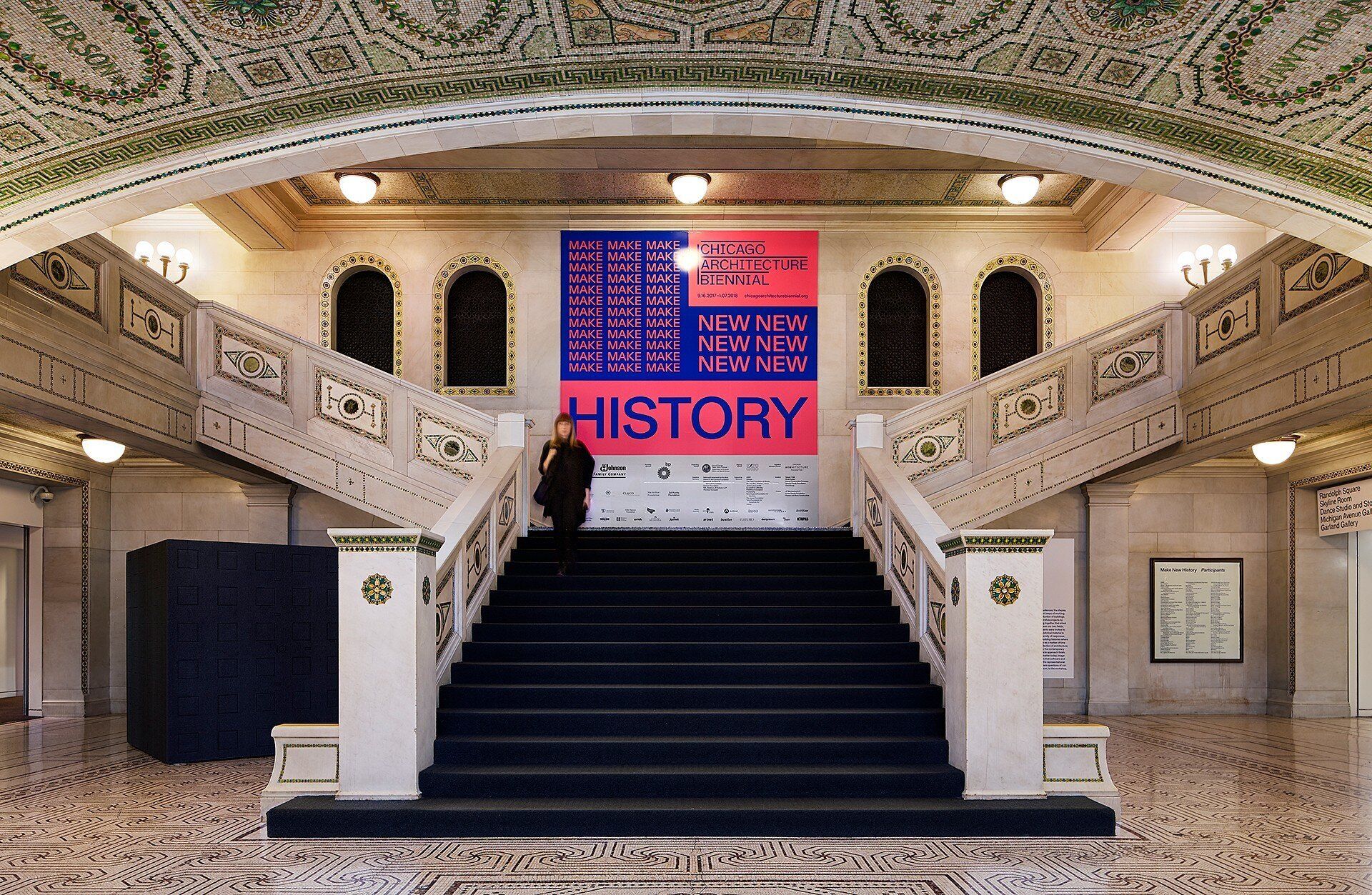
The Chicago Architecture Biennial
The Chicago Architecture Biennial is a free event hosted every two years at the historic Chicago Cultural Center. Here is a quick look at what makes the Chicago Architecture Biennial significant.
The Chicago Architecture Biennial is a free event hosted every two years at the historic Chicago Cultural Center. Here is a quick look at what makes the Chicago Architecture Biennial significant.
Please note: This article was originally published in 2017 and may not reflect current updates or event dates.
WHAT IS THE CHICAGO ARCHITECTURE BIENNIAL?
The Chicago Architecture Biennial is the largest architecture and design exhibition in North America. It’s a city-wide platform that resembles a “World’s Fair” of contemporary architecture. It unveils avant-garde ideas, materials, technologies and practices and serves as a forum for architects to make connections, collaborate with others and engage the public in issues and concerns in the field. The Biennial also recognizes outstanding work in the industry.
In many ways, the Biennial also functions as a large snapshot of a moment in time; a collection of ideas about the issues architects are confronting today. Biennial organizers say the event invites the public to “engage with and think about architecture in new and unexpected ways, and to take part in a global discussion on the future of the field.”
“BIENNALE” OR “BIENNIAL”?
“Biennale” is the Italian word for “biennial”—meaning “occurring every two years.” But beyond the translation, it has come to mean so much more. It is most commonly used within the art world to describe an international festival of large-scale contemporary exhibitions.
The first Biennale was held in Venice in 1895. It began as a showcase of art movements that were developing in different regions of the world. It was a place to connect with artists from other countries and to exchange knowledge, ideas and expertise within the art community. In the 1930s, the Venice Biennale expanded to include music, film and theater. In 1980, the first Venice Architecture Biennale took place and completely transformed the concept of the Biennale. Held now in even years, Venice remains the largest, though there are more than 150 biennales worldwide.
WHAT MAKES THE CHICAGO ARCHITECTURE BIENNIAL UNIQUE?
Unlike Venice, where each country names their own curatorial team and selects architects to participate, the Chicago Architecture Biennial’s artistic directors invited 140 designers from more than 20 countries.
Worldwide, it is also rare for other international biennials to place such an emphasis on engaging the local community with architecture. Chicago is unique in its outreach to students, which is an integral part of the mission. In 2015 and 2017, the CAC was named the Biennial's Signature Education Partner and introduced an estimated 15,000 youth and teachers to the Biennial. The CAC provided field trips, family festival days, teacher trainings, teen ambassadors, teen workshops, teacher and student resources for self-guided field trips, and a self-guide brochure.
The 2017 Chicago Biennial also partnered with six local museums and institutions to establish community anchor sites and expand the impact and presence of the Biennial in Chicago neighborhoods. The Beverly Arts Center, the DePaul Art Museum, the DuSable Museum of African American History, the Hyde Park Art Center, the National Museum of Mexican Art and the National Museum of Puerto Rican Arts and Culture hosted programs and exhibitions around the topic of Make New History.
Additional exhibitions produced in parallel with the Biennial can be found throughout the city. The CAC's exhibition Between States is one example. It demonstrates the Biennial's "Make New History" theme with 50 community-based design solutions that transform underappreciated and under performing spaces in Chicago into rejuvenated civic anchors.
